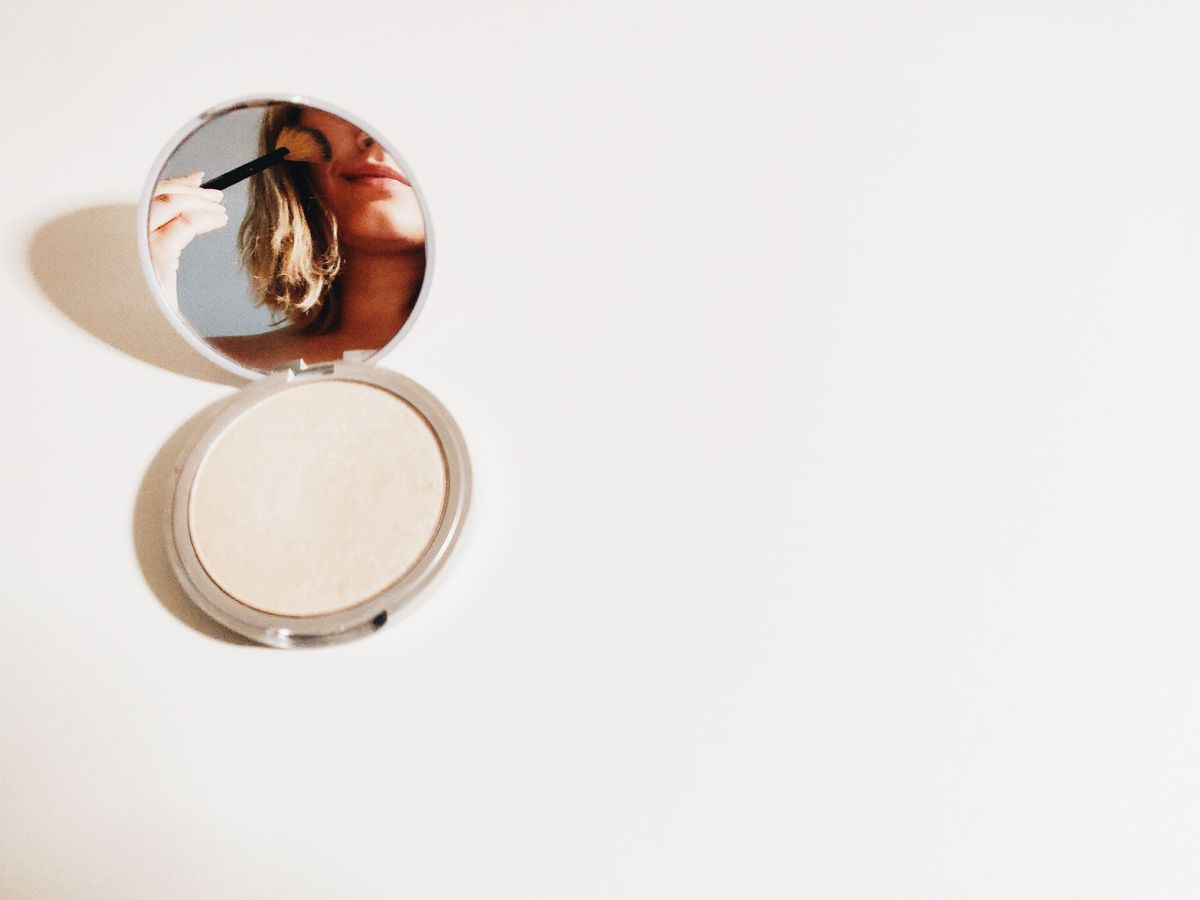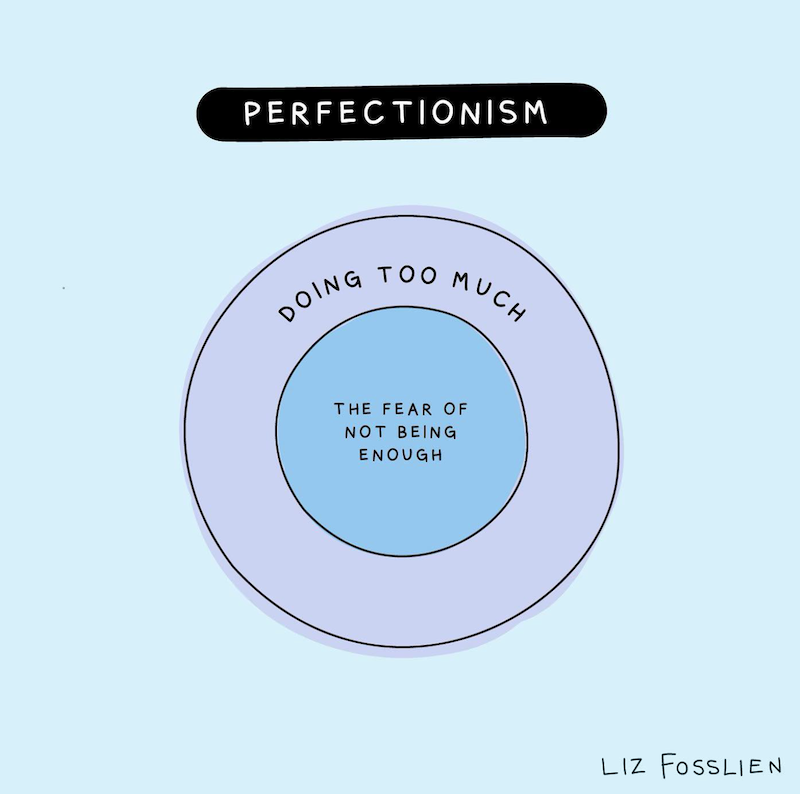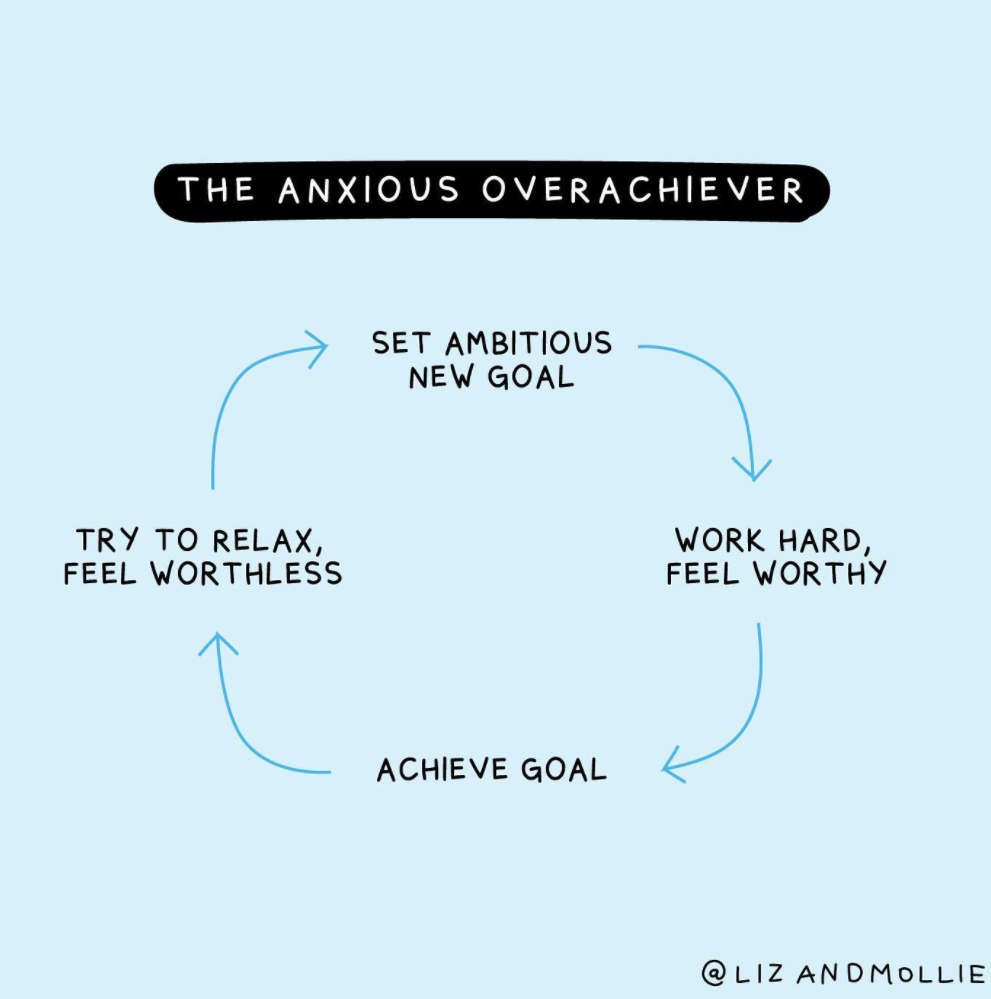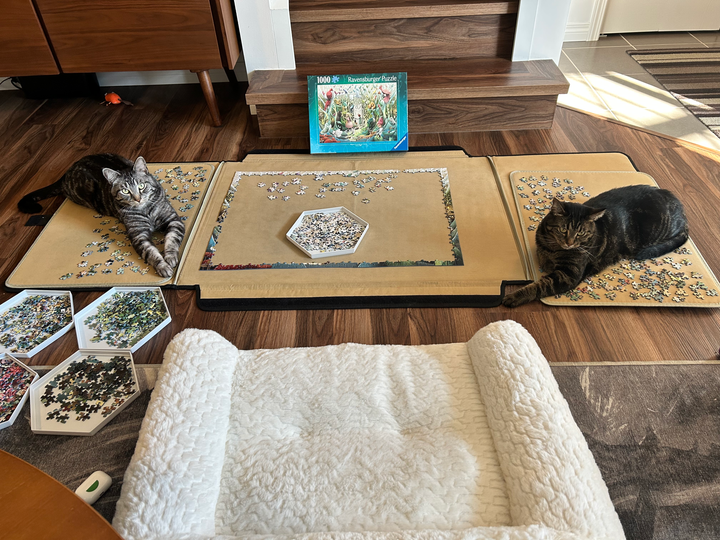How to Manage Perfectionism with A Daily Reflection Practice
The cost of perfectionism is high. Learn why and how to use a daily reflection practice to help notice and manage your perfectionism.

Perfectionism is defined as:
“a personality style characterized by a person's concern with striving for flawlessness and perfection and is accompanied by critical self-evaluations and concerns regarding others' evaluations”[1].
I was listening to Seth Godin’s podcast, Akimbo, a while back and one of the things he said about perfectionism struck a deep chord with me. He said,
“Perfectionism is hiding.”
I have been rolling around in my head ever since. I have long identified as a perfectionist, even perhaps touted it as a badge of honour in the past. As I get older and understand myself better, I have been getting more clarity on how limiting this drive to perfection is and the things I have been hiding from.

Perfectionism works...until it doesn’t
In many ways, perfectionism has served me well over the years. It was what pushed me to study and perform throughout my education:
- I was the consummate high achiever, president of the student council, and a teacher's pet throughout grade school.
- I was in the International Baccalaureate program in high school and even took a University level psychology course as a night class in grade 12.
- I started my degree with 9 credits before setting foot on the University grounds.
- I was on the dean's list every year in University and worked for the chair of the Psychology department as a research assistant for 2 years.
- I was a perpetual volunteer and ended my degree with an extremely high GPA.
This perfectionism is what pushed me to perform to a high standard in every professional role I have ever been in.
And yet…
The cost of perfectionism
As I look back, the cost of that perfectionism was high. It was a source of what has sometimes been crippling anxiety and low self-esteem. It has been part of an ongoing battle with impostor syndrome.
In school, I missed out on some of the experiences of my peers. I didn’t join clubs or make many new friends because I was so focused on getting high grades that there wasn’t space for other things. Even on weekends or holidays, I found it hard to relax and let go of the never-ending to-do list of papers and studying, the results of which were a measure of my self-worth (and each an opportunity for personal devastation if I didn’t get a perfect result).
Beyond University, that perfectionism morphed into avoiding situations where I was unsure I could excel or experiences that were outside my comfort zone. I needed to know I would be “good enough” or at the very least could fake my way through.
If I couldn’t be sure, I often wouldn’t try.

The problem with perfectionism is that nothing is perfect
Perfectionism ends up being an endless amount of effort put into something that is impossible. It’s Sisyphus rolling a huge boulder endlessly up a steep hill.
Unfortunately, perfectionism is almost always a terrible waste.
- It’s a waste of opportunities to learn and grow.
- It’s a waste of energy, all weighing against some imaginary scale of worthiness.
- It’s a waste of time that could have been spent trying something new, learning a new skill, or even being silly or unguarded.
What do you think a drive for perfectionism achieves? Does it outweigh the waste?
Common attributes of perfectionism
Perfectionism often shows itself through:
- Being overly critical of yourself (and others)
- Avoiding situations you don’t excel at
- Procrastinating
- Being overly concerned about what others think
- Fear-driven decision-making
- Fear of failure
- Black-and-white thinking
For example: when you make a mistake, what words do you say to yourself? Do you call yourself names? Do you berate yourself? Do you say things you would never say to someone else? Do you ruminate on it?
What if, instead of berating yourself, you could take a step back and acknowledge that you made a mistake, but that you are human, and it’s ok? What if you could take whatever learning there might be for next time and let it go?

How to manage perfectionism with a daily reflection practice
Cultivating self-awareness is the key to managing perfectionism.
It’s about noticing when you get in your own way, understanding the why of your behaviours, moving past the limiting beliefs and quieting the jerk in your head.
Change starts with reflection and noticing
Once you are more aware of your behaviour you are able to take steps to change. Take the time to look at all the lovely and messy parts. Think about your conversations, how you reacted or didn’t react, and think critically (but kindly).
This means paying attention to your automatic reactions. Lots of things happen over the course of a day, but as you reflect on specific events ask yourself:
- What were your first thoughts?
- How did it feel in your body?
- What did you say to yourself?
- What were the emotions that came up?
How to do a daily reflection
One of the ways you can start cultivating this self-awareness and work on noticing the answers to these questions is through a daily reflection practice.
For example, every night before I go to bed I spend 5 or 10 minutes filling out a spreadsheet (anyone who knows me is laughing at that because… of course there is a spreadsheet).
It doesn’t have to be a spreadsheet. It can be a notes document on your phone, a notebook beside your bed, or whatever you want. The core of my reflection is asking myself 4 simple questions:
- What went well today?
- What was tricky?
- Is there anything I would do differently?
- What am I grateful for today?
The first 3 are the foundation of a common coaching mentorship model, and the last part is just practicing daily gratitude. I like to include the gratitude reflection because even on the toughest days I can find something or someone to be grateful for.
Track mood, energy, and sleep
I also find comfort in tracking things, so, in addition to the above questions, I also track:
- How was my mood?
- How were my energy levels?
- Did I sleep well the night before?
These often coincide with how a day went and are good signposts to pay attention to if I am struggling. If I haven’t slept well all week, it is likely both a symptom of something and potentially a contributing cause of something else
These might not be the right questions for you, but they are a place to start. They are a way to be aware of patterns of behaviour and where your perfectionism might be holding you back. They are a place to reflect on what you did, things that were good, things that were hard, and things that you might try to do in a different way on another day.
Daily reflection spreadsheet template
Here is the spreadsheet template that I use to give you a starting point.
It’s reasonable to want to do a good job on something and excel in your education, career, as a parent, or any other part of your life. But trying to be perfect is always going to hold you back because it’s not possible.
Spend a little time each day reflecting and noticing, and see if any perfectionist behaviours come up. Then you can start the shift from hiding behind your perfectionism to being brave, being human and imperfect, and just being lovely, messy you.
Do you need some help managing your perfectionism? I would be happy to chat.
Share
Ashley Janssen

Productivity consultant, writer, speaker, serial entrepreneur, chaos calmer, introvert, cat-lady. Lover of books, fitness, old fashioned’s, basketball, and video games.
Follow me on
Twitter
or
LinkedIn.
Hire me for
1 on 1 productivity consulting
or
speaking.
Related articles

Not An Annual Reflection

The Most Popular Every Intention Articles in 2025


Comments ()